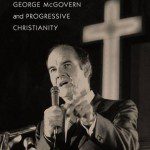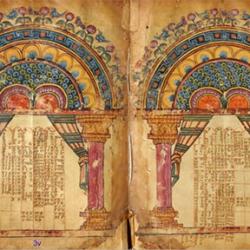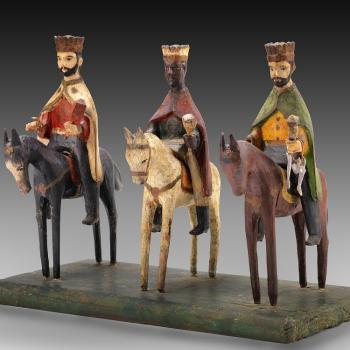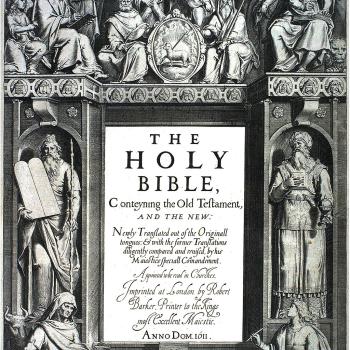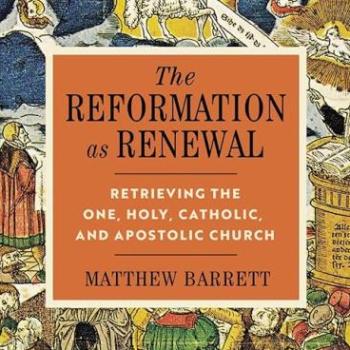Last week Tim wondered about the definition of evangelicalism. Today I’d like to step back a category and ask: whether evangelical or mainline, churchly or individualistic, what makes Protestants “Protestant”?
One could list a set of shared beliefs here, most likely starting with the solas of the Reformation. My Protestant denomination, for example, sees itself
as standing in the mainstream of the Protestant Reformation, particularly with reference to the doctrine that justification is by faith alone. While affirming with the reformers the sovereignty of the word of God over all creeds, and the priesthood of all believers, the Covenant Church has placed particular importance on the Reformation emphasis on salvation by grace alone through faith alone—apart from the works of the law.
Protestants, this line of thinking goes, might debate how grace relates to faith and works, or Scripture to creeds and theological tradition, but they all affirm some version of sola gratia, sola fide, and sola scriptura.
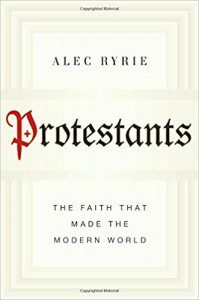 So it’s striking to read Alec Ryrie’s dazzling, frustrating new history of Protestants and find that it’s not really about “doctrines and churches and theological systems” but a people united — and torn apart — by a common passion:
So it’s striking to read Alec Ryrie’s dazzling, frustrating new history of Protestants and find that it’s not really about “doctrines and churches and theological systems” but a people united — and torn apart — by a common passion:
From the beginning, a love affair with God has been at the heart of [Protestants’] faith. Like all long love affairs, it has gone through many phases, from early passion through companionable marriage and sometimes strained coexistence, to rekindled ardor. Beneath all the arguments, the distinguishing mark of a Protestant is the feeling and memory of that love, one on which no church or human authority can intrude. It is because Protestants care so deeply about God that they have been willing both to fight one another and take on the world on his behalf. (2)
Right off the bat, you should wonder if Protestants were or are the only Christians to feel so passionately about God. (Mysticism?) But Ryrie detects a distinctive intensity of this love, one that goes back to the first Protestant:
[Martin] Luther was not a systematic theologian, trading in logical definitions or philosophical consistency. The systematizers who followed in his wake picked out two key principles in his thought: sola fide and sola scriptura, “faith alone” and “Scripture alone.” But this risks missing the point. Luther’s theology was not a doctrine; it was a love affair. Consuming love for God has been part of Christian experience since the beginning, but Luther’s passion had a reckless extravagance that set it apart, and which has echoed down Protestantism’s history. He pursued his love for God with blithe disregard for the bounds set by church and tradition. It was an intense, desolating, intoxicating passion, sparked by his life-upending glimpse of God’s incomprehensible, terrible, beautiful love for him. Like any lover, he found it incredible that his beloved should love him, unworthy as he was. And yet he discovered over the long years of prayer and study that God loved him wildly, irresponsibly, and beyond all reason. (20, emphasis mine)
(Whether you want to read Protestants yourself might depend on how you react to that passage, which exemplifies Ryrie’s writing. While your mind wants to pause over flattened details and pick at nits, the prose pulls you forward relentlessly. This is a genuine page-turner of a popular history, for better and for worse. I can’t imagine the combination of knowledge, gall, curiosity, craft, and sheer chutzpah required to write a half-millennium-spanning history in such a manner!)
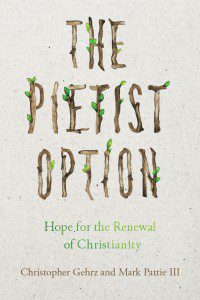 Though it came out in time for the 500th anniversary of Luther’s 95 Theses, Protestants doesn’t linger overlong on the Reformation. By the time it reaches Isaac Newton (about a third of the way through) and the Deists’ attempts to reconcile religion with the functioning of a mechanistic universe, the initial fervor of Luther has cooled considerably: “Deism is less a passionate love affair with God than a dignified arranged marriage” (156). But at the same time that Newton was writing the Principia, Philipp Spener and my other Pietist forebears were making possible “a rekindling of the love affair with God that had been Protestantism’s beating heart since Luther and that had run through its veins ever since” (167).
Though it came out in time for the 500th anniversary of Luther’s 95 Theses, Protestants doesn’t linger overlong on the Reformation. By the time it reaches Isaac Newton (about a third of the way through) and the Deists’ attempts to reconcile religion with the functioning of a mechanistic universe, the initial fervor of Luther has cooled considerably: “Deism is less a passionate love affair with God than a dignified arranged marriage” (156). But at the same time that Newton was writing the Principia, Philipp Spener and my other Pietist forebears were making possible “a rekindling of the love affair with God that had been Protestantism’s beating heart since Luther and that had run through its veins ever since” (167).
As Pietism grew into 18th century revivalism, evangelical Protestants like the Welsh hymnwriter Ann Griffiths insisted that “Earth cannot, with all its trinkets, / Slake my longings at this hour….” Ryrie — who emphasizes the significant roles played women like Griffiths in that awakening, as many others — concludes:
This is about desire: the craving for God that is at the heart of Protestantism’s great love affair. Like all great loves, it is a desire that the believer seeks to sharpen, not to satiate. Griffiths’ meager, earthly desires are not only captured by Jesus; they are widened, giving her a breadth of longing beyond anything she previously knew to be possible” (182).
As Ryrie leaves Europe and moves deeper into modernity, the theme continues. In the concluding chapter on Pentecostalism, for example, he argues that speaking in tongues was important “not for itself but for the inner experience that accompanies it: an immediate, ecstatic, and settled sense of God’s presence and power. We have seen throughout this book that Protestantism is about the sometime reckless pursuit of an unmediated love affair with God. In that sense, Pentecostalism is profoundly and authentically Protestant” (441-42).
Of course, that wording suggests that participants in a religious movement can recklessly seek after the love of God but, in other senses, wind up not Protestant.
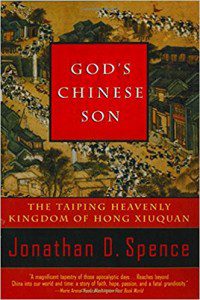 Flexible as his definition is, Ryrie does rule a few rather passionate movements out of bounds. “The Taiping were not Protestant,” he concludes of “the extremely idiosyncratic sect” led by Hong Xiuquan in mid-19th century China; its “distinctive features and breathtaking violence [by the time it was done in 1864, the Taiping Rebellion had resulted in up to 20 million deaths] have no real Protestant parallels,” though “it did contain plenty of disconnected Protestant fragments” (397). Touring America (“Protestantism’s Wild West”) in the same time period, Ryrie comes to the Jehovah’s Witnesses and the Latter-day Saints, only one of which meets his definition. “Neither Witnesses nor mainstream Protestants like to admit it, but they belong to the same extended family”; however, Joseph Smith and his followers “[provide] a unique example of how far Protestantism can stretch and how, in the end, it can break.” Ryrie includes Mormonism as “Protestant-accented,” but concedes that it “arguably does not belong in this book at all,” that its “complex theological system… is at least as far removed from Christianity as Christianity is from Judaism” (231-32).
Flexible as his definition is, Ryrie does rule a few rather passionate movements out of bounds. “The Taiping were not Protestant,” he concludes of “the extremely idiosyncratic sect” led by Hong Xiuquan in mid-19th century China; its “distinctive features and breathtaking violence [by the time it was done in 1864, the Taiping Rebellion had resulted in up to 20 million deaths] have no real Protestant parallels,” though “it did contain plenty of disconnected Protestant fragments” (397). Touring America (“Protestantism’s Wild West”) in the same time period, Ryrie comes to the Jehovah’s Witnesses and the Latter-day Saints, only one of which meets his definition. “Neither Witnesses nor mainstream Protestants like to admit it, but they belong to the same extended family”; however, Joseph Smith and his followers “[provide] a unique example of how far Protestantism can stretch and how, in the end, it can break.” Ryrie includes Mormonism as “Protestant-accented,” but concedes that it “arguably does not belong in this book at all,” that its “complex theological system… is at least as far removed from Christianity as Christianity is from Judaism” (231-32).
But however heterodox its doctrines, it’s not entirely clear why Mormonism doesn’t meet the “love affair with God” standard. (Nor why the Taiping were clearly not Protestant by this definition, but other apocalyptic sects were.) While the Mormon affirmation of ongoing revelation — to the point of accepting scriptures other than the Old and New Testament — seems a key factor in pushing it beyond Ryrie’s boundaries, he ultimately expects Pentecostals to shape the future of Protestantism in part because of “their openness to the Holy Spirit’s continued promptings….”
In his forward-facing epilogue, Ryrie revisits the other tension that may define Protestant identity: a commitment to the Bible that inspires both heartfelt devotion and ruthless polemics. By the 20th century, that combination had produced a “no-surrender textual absolutism” among conservative Protestants. Enter the Pentecostals, whose “tradition makes it easier to read the Bible as a love letter and less necessary to read it as a treatise.” As an admittedly “extreme example” of that theme, he points to Zimbabwe’s Friday Masowe Church. “We don’t talk Bible-talk here,” says one of its preachers; pointing to his heart, he continues, “We have a true Bible here” (463).
Unsurprisingly, a history of Protestantism that decenters both doctrinal orthodoxy and biblical authority — one that insists that “[a]ll Protestants adapt; the difference is that liberals admit it” (264) — has rankled some conservative Protestants. Writing for The National Review, Baptist intellectual Russell Moore argued that Ryrie’s
narrative of a Protestantism willing to jettison even the Bible in the name of protecting the Gospel allows him to conclude that the churches’ opposition to the sexual revolution is culturally maintained and that the Biblical texts on sexual morality will go overboard, just as slavery did, when the rejection of traditional sexual morality is ubiquitous. For Ryrie, both sides of the current debates on gender and sexuality rending Protestant communions (such as the Anglicans) are “driven by society, not theology.” In his view, Protestant theology is little more than the ratification of social trends, a bit after they have been normalized in the rest of society.
For Moore, Protestantism begins not with a “love affair,” but with Luther’s recovery of “the truth about God and man found in the Biblical Gospel… that God declares us right with him because we are united, by faith, to the righteousness of God, which is Jesus Christ.” So even “[a]s the theological liberalism of North American and Western European Protestant churches euthanizes those institutions, others — usually more orthodox and intentional about Protestant distinctives — are rising to take their place.” It’s when it’s “more orthodox,” says Moore, that Protestantism “[continues] to buck the cultural consensus.”
In theology, I’m probably closer to Moore than Ryrie. (Though I’m not sure: I don’t know much about our author’s background, and he pulls few punches in his analysis of theological liberals heading into the First World War or those on a quixotic quest for “religionless Christianity” after the Second.) But as a matter of historical interpretation, I suspect that Ryrie is right.
Seen across the sweep of centuries and continents, Protestantism comes across as a religious restlessness, endlessly adaptable precisely because of deep devotion. Its own gatekeepers may want to insist that the true descendants of the Reformation have done no other than to stand for five centuries on the fixed ground of the “Biblical Gospel,” but they can do little to prevent Protestants from ”forever starting new arguments and spawning new forms” (5) as they pursue Luther’s “love for God with blithe disregard for the bounds set by church and tradition.”



